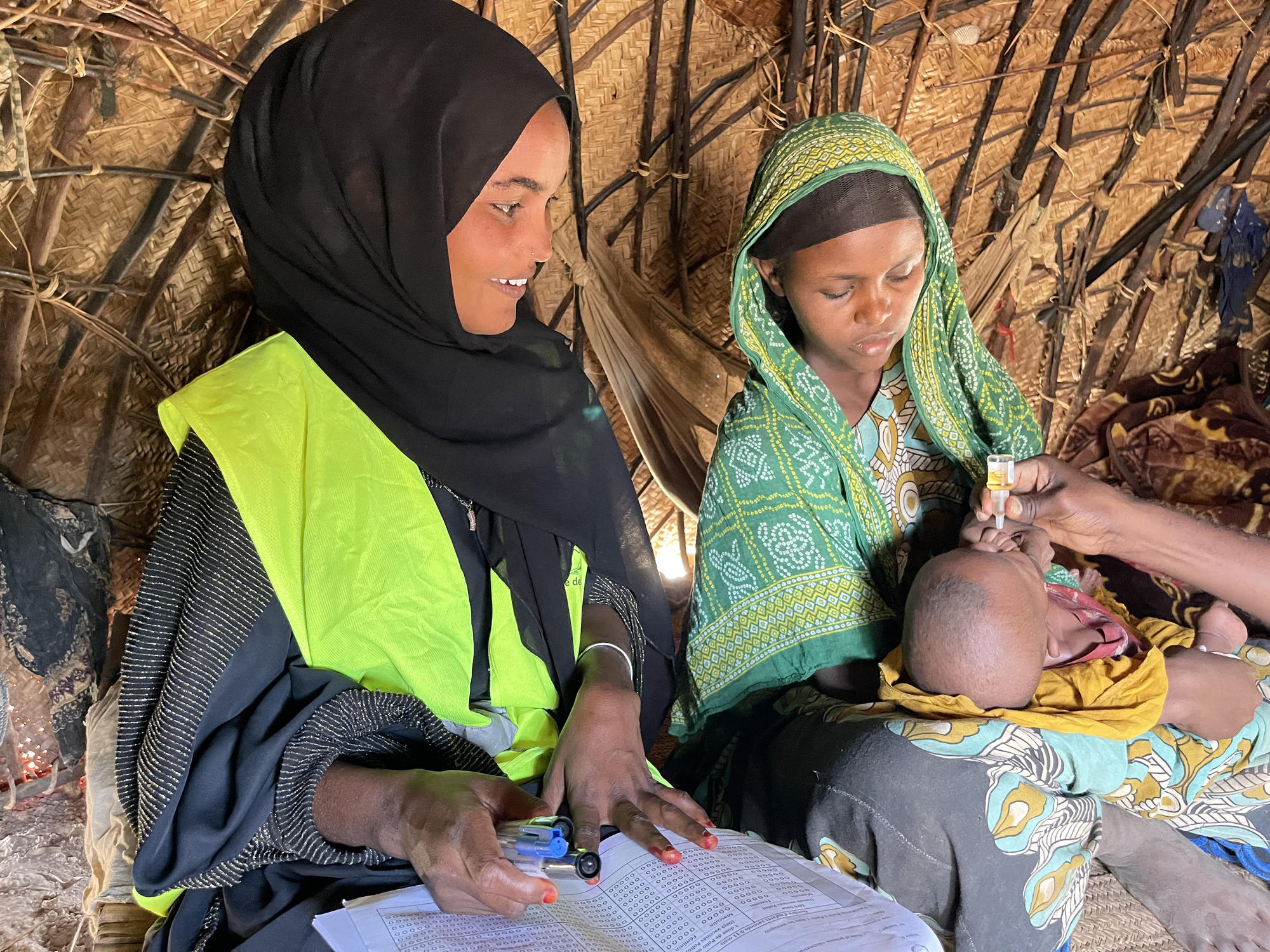Beyond Polio: Reaching the Unreached in Djibouti’s Remote Wadis

In the arid and remote wadis of Dadato Weima and Andoli, in Alaili Dada district, health services rarely reach the nomadic families who move seasonally with their herds. With the closest health post nearly 40 kilometers away, many children are born and raised far from any medical support—missing out on lifesaving vaccines and basic care.
But in April 2025, during the first round of Djibouti’s polio vaccination campaign, that changed.
Photo: A health worker administers oral polio vaccine to children in Alaili Dada during the April 2025 campaign, reaching nomadic families in remote wadis. © UNICEF Djibouti
A Campaign with Broader Purpose
Instead of limiting the effort to oral polio vaccination (OPV), Mr. Saleh Mohamed H.—head nurse of the Alaili Dada health post—led his mobile team on an integrated outreach effort. Their aim was simple but urgent: to find and vaccinate children who had never received a single dose of routine immunization, and to bring essential healthcare to families who rarely, if ever, interact with the formal health system.
The team ventured deep into the wadis, transforming the campaign into more than just a vaccination drive. They provided BCG and other routine immunizations, shared key hygiene messages, and offered basic medicines—such as paracetamol and cough syrup—to families in need.
“Parents tell us that beyond the polio vaccine, what they really need are basic medicines,” Mr. Saleh explained. “We listen, and we respond.”

Photo: Mr. Saleh Mohamed H. and his team deliver integrated services—vaccines, basic medicines, and health education—to isolated families during the campaign. © UNICEF Djibouti
Building Trust Through Integrated Services
By meeting families where they live—and responding to their actual needs—the team built trust and increased vaccine acceptance. What might have been a single-purpose campaign became a mobile health lifeline. Children previously missed by routine services were finally reached and vaccinated. Mothers left with new information and medicines. Communities felt seen and supported.

Photo: Mr. Saleh Mohamed H., head nurse of Alaili Dada health post, vaccinates a young child against measles as part of the mobile outreach strategy in remote areas of Djibouti. © UNICEF Djibouti
Equity in Action
This experience in Alaili Dada shows that with flexibility, trust, and leadership, even the most remote communities can be reached. When polio campaigns are adapted to local realities and combined with routine services, they become powerful tools for health equity.
Djibouti’s story is not just about stopping polio—it’s about proving that no child is too far to be protected.


Photo: A mother in Alaili Dada receives vitamin A supplements and essential health information for her child from the mobile health team led by Mr. Saleh Mohamed H. © UNICEF Djibouti
Written by Armand Atangana, SBC Specialist, UNICEF Djibouti, with support from the Global Polio Outbreak Response Team

